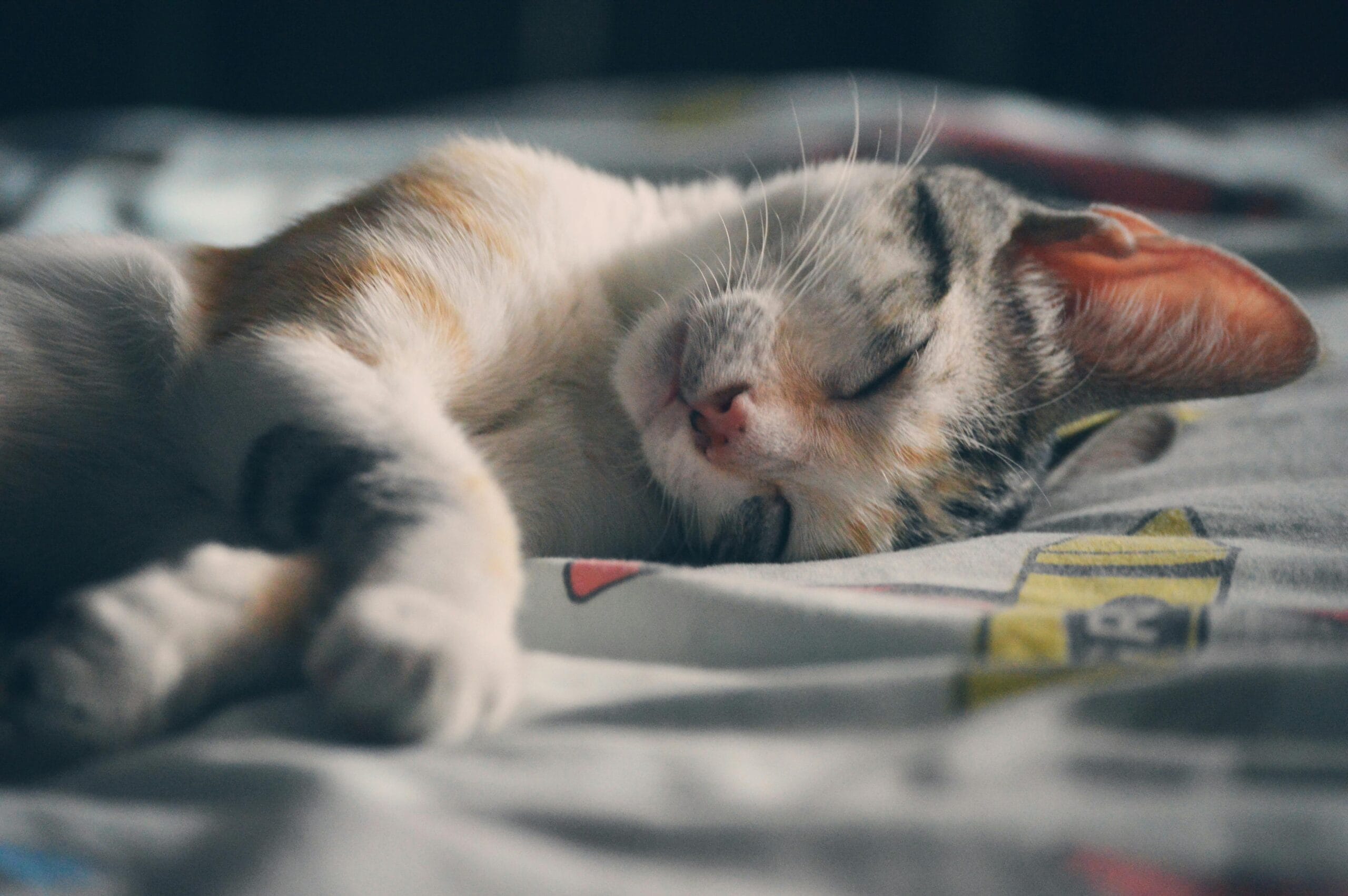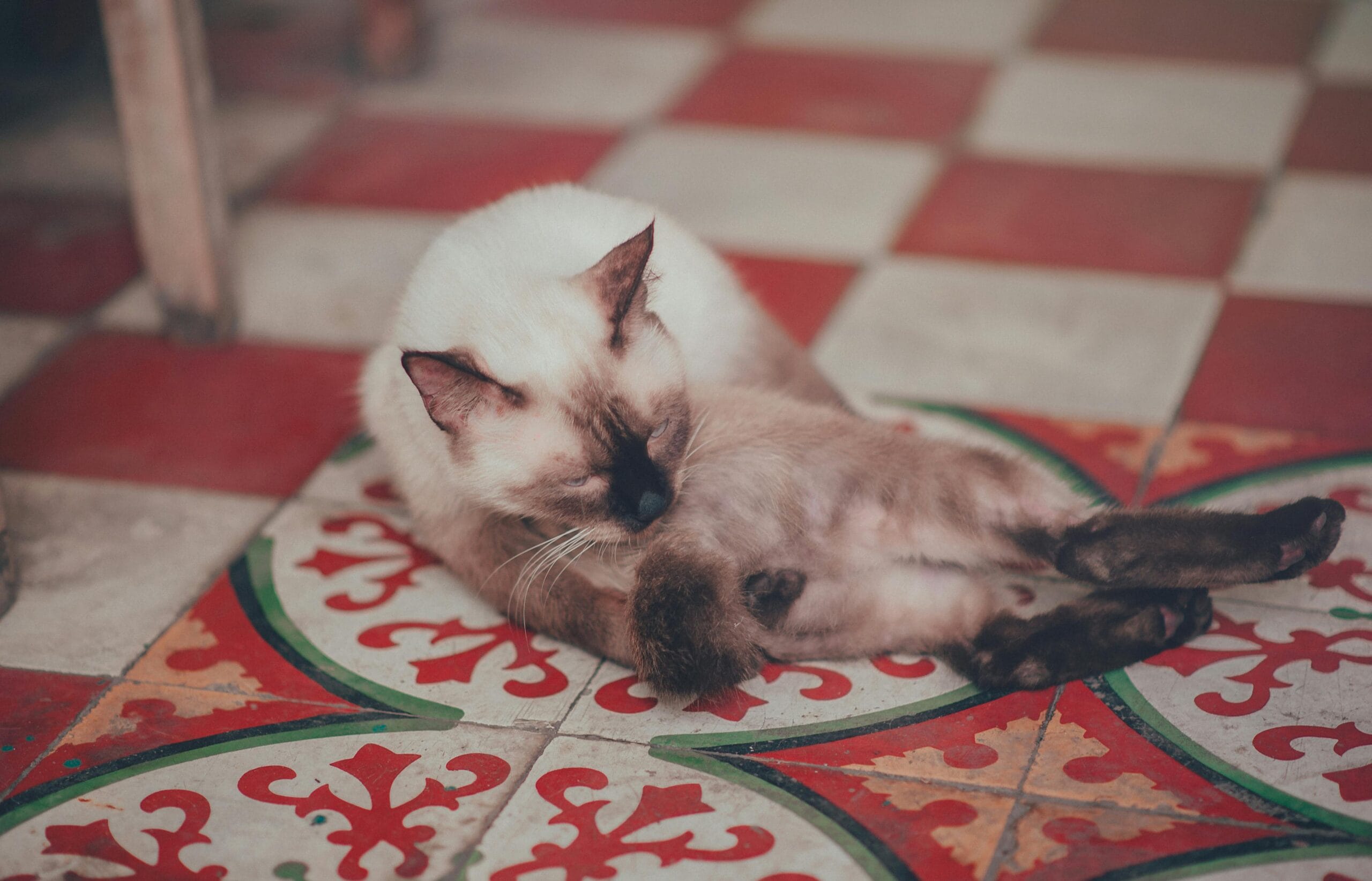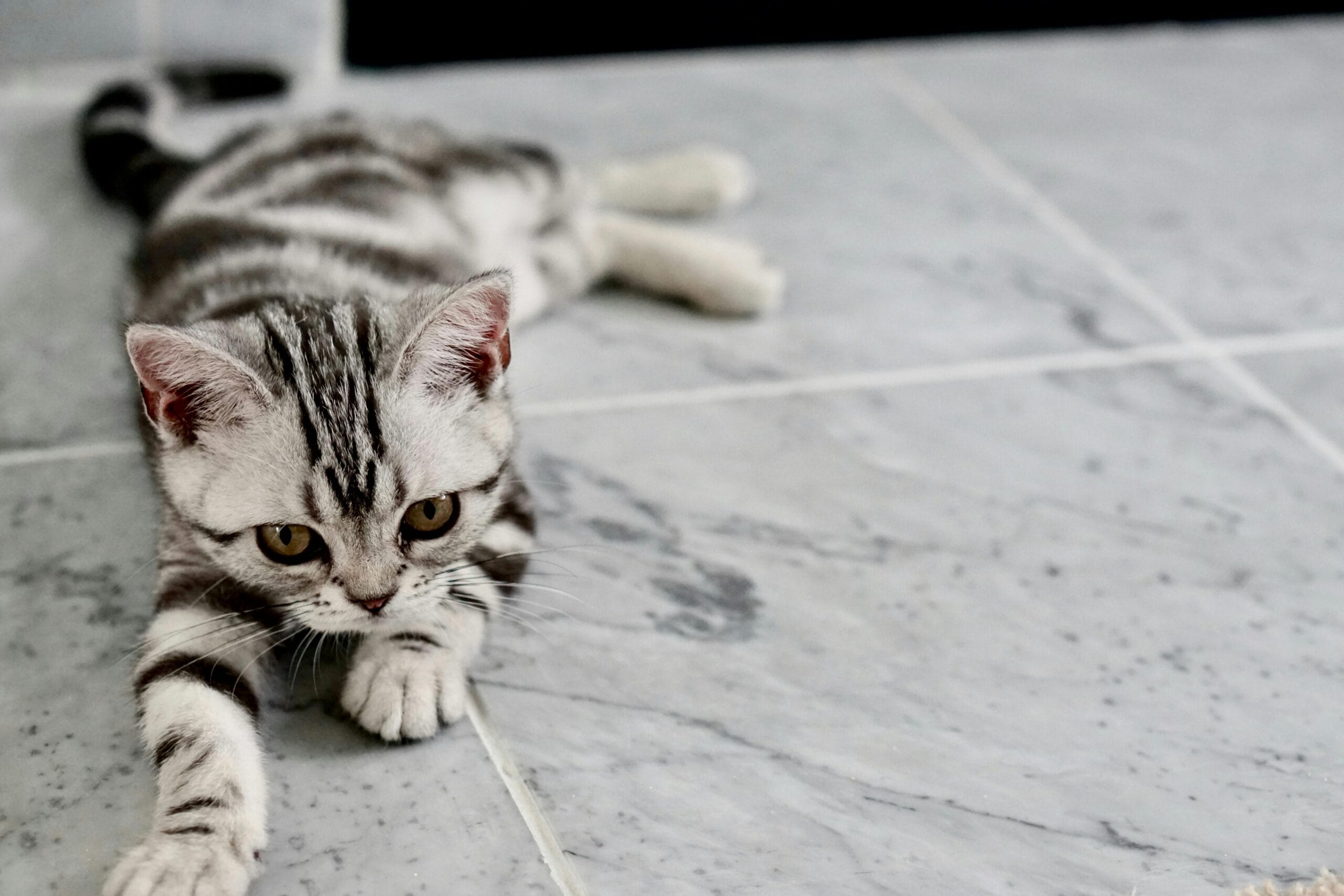Why Is My Cat Eating Cockroaches ?

Why is my cat eating cockroaches? Discover why cats eat cockroaches and other insects. Learn about the dangers and what to do if your cat eats bugs. Cat eating cockroaches? Find answers now!
Why Is My Cat Eating Cockroaches? Understanding Feline Hunting Instincts
Many cat owners have witnessed their feline companions engaging in behaviors that, while perhaps unsettling, are perfectly natural. One such behavior is the consumption of insects, and specifically, the question that often arises is: Why is my cat eating cockroaches? This article delves into the reasons behind this behavior, exploring the natural instincts of cats, potential health concerns, and steps you can take to address this issue.
Cat Eating Cockroaches: A Natural Hunting Behavior
The primary reason why your cat might be eating cockroaches is simply because they are hunters by nature. Domesticated cats, despite their pampered lifestyles, retain a strong predatory drive. Cat eating cockroaches, along with other insects like flies, spiders, and even mice, is a manifestation of this ingrained instinct. The movement of the cockroach triggers their hunting response. The thrill of the chase, the capture, and the subsequent consumption are all part of a deeply satisfying experience for your cat.
This instinct isn’t solely about hunger; it’s also about enrichment. Just like a bird chasing a butterfly, your cat isn’t necessarily starving when it catches and eats a cockroach; instead, it’s engaging in a behavior that provides mental and physical stimulation. Think of it as a form of play – a natural and fulfilling activity for a cat. Even well-fed cats may exhibit this behavior, driven more by instinct and the enjoyment of the hunt than by a need for sustenance. This is a common reason behind cat eating insects.
Understanding the Cat’s Prey Drive: More Than Just Hunger
While a lack of proper nutrition can sometimes contribute to a cat’s pursuit of insects, it’s rarely the sole cause. A well-fed cat may still hunt for pleasure and stimulation. The act of hunting and killing prey provides a significant release of endorphins, making it a rewarding experience. Cat eating cockroaches, therefore, should not immediately be interpreted as a sign of malnutrition or neglect, though you should certainly rule these out.
The size and accessibility of the prey also play a role. Cockroaches, being relatively small and often found in dark, confined spaces, represent an easily obtainable “catch” for a cat. This ease of capture reinforces the behavior, making it even more likely to repeat.
Nutritional Deficiencies: A Possible Contributing Factor
While a strong prey drive is the usual culprit behind cat eating cockroaches, nutritional deficiencies can sometimes exacerbate the issue. A cat lacking certain essential nutrients in their diet might seek them out in unconventional sources, including insects. This is less common in cats fed a complete and balanced commercial diet but can be a factor if your cat is on a homemade diet or if there are underlying health issues.
If you suspect nutritional deficiencies, consult your veterinarian. They can assess your cat’s diet and recommend necessary adjustments. Remember, a balanced diet is crucial for your cat’s overall health and well-being. A thorough check-up can rule out any underlying issues that could influence your cat’s dietary choices.
Health Risks Associated with Cat Eating Cockroaches
While a cockroach here and there likely won’t cause significant harm, there are potential risks associated with cat eating cockroaches. Cockroaches can carry parasites, bacteria, and other pathogens that could infect your cat. These infections could range from mild gastrointestinal upset to more serious conditions. The risk is particularly high if the cockroaches have access to contaminated areas.
Symptoms of infection could include vomiting, diarrhea, lethargy, and loss of appetite. If you notice any of these symptoms after your cat has consumed a cockroach, it’s crucial to consult your veterinarian immediately. Early intervention is key to effective treatment and preventing further complications. This is especially important if you have any concerns about your cat’s health relating to cat eating insects.
How to Deter Your Cat from Eating Cockroaches
Deterrence strategies focus on removing the attraction and making the behavior less rewarding. First and foremost, eliminate the cockroach population in your home. Thorough cleaning, sealing cracks and crevices, and using cockroach traps or bait are essential steps. You may want to consult a pest control professional for more effective elimination. The EPA offers guidance on safe pest control products.
Providing your cat with ample mental and physical stimulation can also reduce their hunting drive. Interactive play sessions, puzzle feeders, and climbing structures offer alternative outlets for their energy. A tired and contented cat is less likely to focus its attention on hunting cockroaches.
Finally, consider providing your cat with commercially available catnip toys or other engaging toys that mimic the texture and movement of prey. These diversions can help satisfy their hunting instincts without resorting to consuming potentially harmful insects.
Is It Always a Cause for Concern?
Occasional instances of cat eating cockroaches shouldn’t always trigger alarm. However, if the behavior becomes frequent, persistent, or accompanied by other concerning symptoms, it’s crucial to consult your veterinarian. They can help determine the underlying cause and recommend appropriate solutions. Regular veterinary check-ups are always recommended for ensuring your cat’s optimal health.
Conclusion: Understanding the Why Behind Cat Eating Cockroaches
Understanding why your cat exhibits this behavior is the first step towards addressing it. The interplay between natural instincts, environmental factors, and potential nutritional issues needs to be considered. By combining pest control measures, environmental enrichment, and veterinary consultation, you can minimize the risk associated with cat eating cockroaches and ensure your feline friend’s overall well-being. Remember that a happy and healthy cat is less likely to seek out unconventional food sources.
Further Reading:
For more detailed information on feline behavior and nutrition, you might find these resources helpful:
The American Society for the Prevention of Cruelty to Animals (ASPCA): https://www.aspca.org/
The International Cat Care: https://icatcare.org/
Share Your Experiences!
Have you ever experienced your cat eating cockroaches or other insects? Share your stories, tips, and advice in the comments below. Let’s learn from each other’s experiences with cat eating cockroaches and cat eating insects! Your insights could help other cat owners understand this common feline behavior better.

FAQ: Why Is My Cat Eating Cockroaches?
Q: Why is my cat eating cockroaches? Is it harmful? A: Cats are natural hunters. Eating cockroaches, while unsanitary, is usually not immediately harmful. However, cockroaches can carry parasites and bacteria, so monitor your cat for any digestive upset. The behavior of your cat eating cockroaches needs addressing.
Q: My cat eats cockroaches, but ignores its food. Is it sick? A: A sudden change in appetite coupled with cat eating insects like cockroaches could indicate illness. Consult a vet immediately.
Q: Is it normal for cats to eat cockroaches? A: While cats are predatory and may occasionally eat insects, consistently eating cockroaches suggests a potential problem. It’s not normal behavior.
Q: My cat is obsessed with catching and eating cockroaches. What can I do? A: Thoroughly clean your home to eliminate the cockroach infestation. Provide your cat with more engaging toys and playtime to distract it from hunting.
Q: Are there health risks associated with my cat eating cockroaches? A: Yes, cockroaches carry parasites and bacteria that can make your cat sick. Diarrhea, vomiting, and lethargy are potential symptoms. If your cat eating cockroaches persists, seek veterinary care.
Q: What if my cat eats a poisoned cockroach? A: This is extremely dangerous. Contact your veterinarian or an animal poison control center immediately.
Q: My kitten is eating cockroaches. Is this more dangerous? A: Yes, kittens are more vulnerable to parasites and toxins. The risk associated with your cat eating cockroaches is higher for a kitten. Seek veterinary attention if your kitten is showing symptoms.
Q: How can I prevent my cat from eating cockroaches? A: Eliminate the cockroach source through professional pest control and thorough cleaning. Provide engaging toys and puzzle feeders.
Q: My cat only eats cockroaches, refusing all other food. What should I do? A: This is abnormal and may indicate a serious underlying health issue. Veterinary attention is urgent. The issue of your cat eating insects needs veterinary assessment.
- Q: Is there a way to train my cat to stop eating cockroaches? A: Training is difficult. Focus on eliminating the cockroach problem and providing positive reinforcement for desirable behaviors. Addressing the root cause (Why Is My Cat Eating Cockroaches) is key.

Why Is My Cat Eating Cockroaches? Practical Tips & Health Concerns
Discovering your cat indulging in a cockroach feast is unsettling. While a rare cockroach snack might not cause immediate harm, it’s crucial to understand the potential dangers and take preventive measures.
Why the Roach Attraction?
Cats are natural hunters. The movement and the prey-like nature of cockroaches trigger their predatory instincts. Some cats simply enjoy the taste, while others may be deficient in certain nutrients, leading them to seek alternative sources of protein.
Health Risks Associated with Cockroach Consumption
Cockroaches carry numerous pathogens, including Salmonella, E. coli, and various parasites. These can cause gastrointestinal upset, vomiting, diarrhea, and in severe cases, more serious illness in your cat. Pesticides used to control cockroaches can also pose a threat if ingested by your cat. Infestation can expose your cat to allergens, triggering respiratory issues or skin problems.
Practical Tips to Prevent Cockroach Consumption
Eliminate the Source: Thoroughly clean your house, paying attention to areas where cockroaches thrive – kitchens, bathrooms, under sinks. Seal cracks and crevices to prevent entry. Consider professional pest control for severe infestations.
Provide Nutritious Food: Ensure your cat’s diet is balanced and meets its nutritional needs. Consult your veterinarian for dietary advice, especially if your cat seems to have unusual cravings.
Supervise Your Cat: Keep a close watch on your cat, especially in areas prone to cockroach activity. Interrupt the behavior immediately and redirect their attention with toys or treats.
Safe Pest Control: If using insecticides, choose pet-safe options and follow instructions carefully. Keep treated areas away from your cat until completely dry.
Veterinary Check-up: Schedule a vet appointment if you notice any changes in your cat’s behavior, appetite, or bowel movements following cockroach consumption. Early intervention is key.
SEO Keywords:
cat eating cockroaches, cat eats roaches, cat cockroach infestation, cat health risks, cockroach dangers for cats, preventing cats from eating roaches, cat diet, pet-safe pest control, feline health, veterinary care
Disclaimer: This information is for general knowledge and does not constitute veterinary advice. Always consult with a veterinarian for any concerns about your cat’s health.